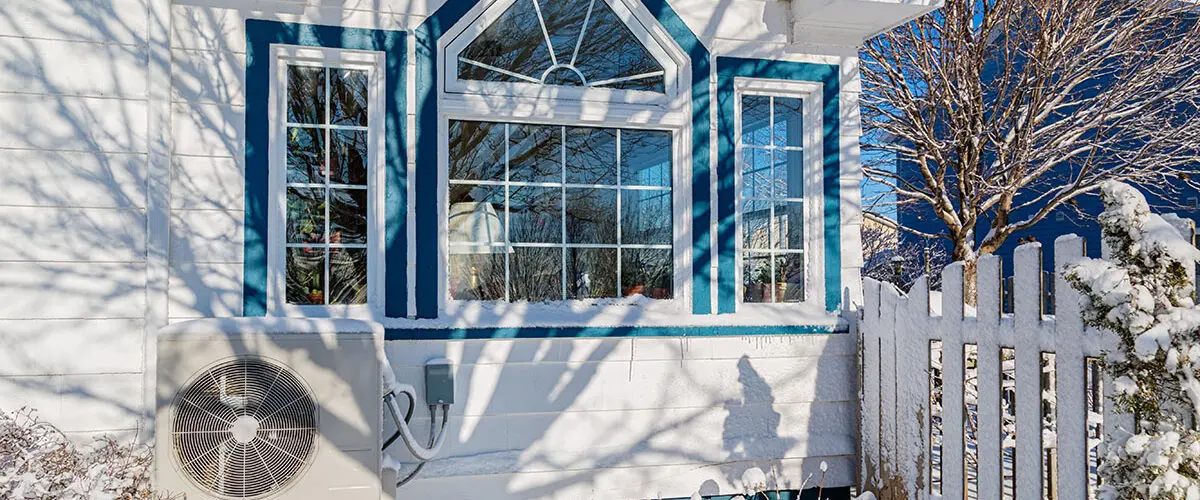Opinion: New Jersey’s energy future must — and will be — electric
It may seem like a tall order: Make changes to your home to lower your energy bills, remove harmful pollutants from the air you breathe and help in the global fight against climate change.
But it’s not as hard as it might sound.
According to a new report commissioned by New Jersey Conservation Foundation, it’s possible for New Jersey residents to achieve all three. The report, “The Future Is Electric,” finds that consumers could see more than a 50% reduction in their energy bills by installing highly efficient electric heating and cooling systems and weatherizing their houses. That amounts to substantial savings in a household budget.
What’s more, transitioning away from burning fossil fuels inside homes would mean cleaner and healthier indoor air, and fewer outdoor emissions contributing to global warming and over 250 premature deaths annually in New Jersey.
Prepared by the Acadia Center, a New England-based climate research and advocacy nonprofit, the report also highlights the need for New Jersey and its utilities to provide more incentives for consumers to invest in efficient electric heating — similar to the popular rebates offered to consumers who buy electric vehicles.
Coincidentally, “The Future Is Electric” was released one day after the Intergovernmental Panel on Climate Change issued a dire warning that our rapidly warming climate is wreaking havoc across the planet, and that time is running out to stabilize it.
Unless greenhouse gas emissions are quickly and drastically reduced, the IPCC report said, climate change impacts — including floods, storms, droughts and other extreme weather events — will overwhelm the ability of nature and humanity to adapt.
New Jersey is making progress on reducing the state’s reliance on fossil fuels to generate electricity. This state we’re in requires that by 2030, 50% of the electricity we consume will come from in-state and regional solar and wind.
The state is also working to reduce the state’s largest source of greenhouse gas emissions — vehicles and transportation — with generous rebates to buyers of electric vehicles.
One piece of the clean energy puzzle that has gotten considerably less attention is the building sector. Many New Jersey residents don’t realize that houses and buildings are the state’s second largest source of greenhouse gas emissions.
When you think about it, it makes sense: Our state has hundreds of thousands of homes and buildings. Each building heated with natural gas, heating oil or propane has its own on-site combustion system, which produces both indoor and outdoor emissions. Polluted air can cause or exacerbate many health conditions, including asthma.
What’s the alternative to fossil fuel systems? Many consumers are turning to a newer technology known as air source heat pumps.
“Heat pumps are essentially a super-efficient air conditioner that can work backwards,” explained Amy Boyd, policy director at the Acadia Center. They work by moving heat from outdoor air indoors, and are effective even in cold climates.
Air source heat pumps are far more energy efficient than fossil fuel combustion. By combining heat pump technology with weatherizing “leaky” houses, Boyd said, consumers could see their energy bills cut in half.
Heat pumps create no emissions, either indoors or outdoors, so families can breathe cleaner, healthier air. This is especially important in New Jersey’s urban areas, which have the state’s highest levels of air pollution.
So what’s stopping New Jersey consumers from reaping these benefits? Mostly money.
Heat pump systems have higher up-front costs, and New Jersey is behind other northeastern states in offering financial incentives to motivate homeowners to make the switch.
“One thing that states like Massachusetts are doing is putting their money where their climate policy is,” said Boyd.
In states that offer substantial rebates, Boyd noted, heat pump systems can be comparable in cost or even cheaper than fossil fuel combustion systems.
It’s time for New Jersey to get with the program and support a switch to clean, electrically-heated buildings.
The Murphy administration has already committed to producing more electricity with clean, renewable technology — and getting more drivers in electric vehicles. The next logical step is to make it affordable for residents to upgrade their homes to safe, efficient, non-polluting heating systems.
One advocate for stronger incentives is State Sen. Andrew Zwicker, who spoke at a briefing on the release of “The Future Is Electric” report.
“New Jersey has to be a leader here,” Zwicker said. “If we can provide financial incentives, consumers can have choices” for better health, lower energy bills and fighting climate change.
“This is a key moment, not just in New Jersey’s history or U.S. history, but globally,” Zwicker added. “The IPCC report that just came out makes it clear that global warming is outpacing our ability to cope. The oceans are rising, the forests are burning, and carbon dioxide levels continue their upward march. It’s now a question of, are we willing to take this moment and move forward?”
New Jersey’s answer needs to be yes.
Read the full article at northjersey.com.



















